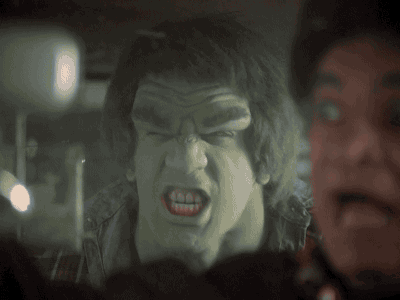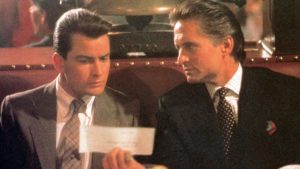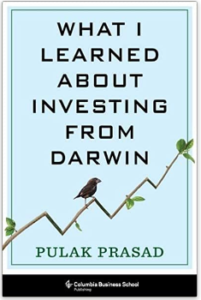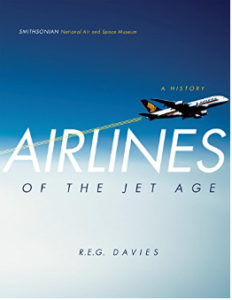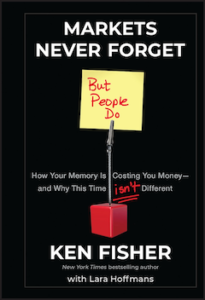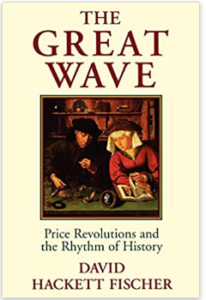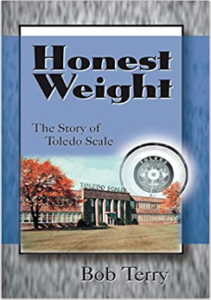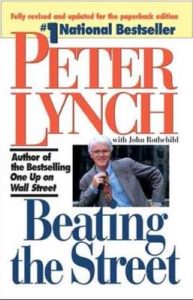Tough father experiences are behind some of the world’s greatest success stories. Businesspeople and investors who drew inspiration and drive from their father’s weaknesses rank among some of the best stories I have read. And it’s not just men, as Marina von Neumann Whitman’s autobiography, The Martian’s Daughter (2013), confirms. John von Neumann was a mess as a father, yet Marina was an amazing person, brilliant economist, and celebrated thought leader. Some other names that immediately come to mind include pioneer hedge fund managers Michael Steinhardt and George Soros, actor Arnold Schwarzenegger, and business leaders Bob Iger and Bill Rosenberg (founder of Dunkin Donuts). But the list is much longer and includes luminaries like Adam Smith, Alexander Hamilton, Napoleon Bonaparte, Winston Churchill, Elon Musk, Ken Fisher, Jeff Bezos, John Lennon, Bono, Sting, and Jay-Z.
Steinhardt had a love-hate relationship with his father, who had left his mom and who he could not bring himself to call Dad or much less say “I love you.” “Throughout his life, my father was erratic and unpredictable. I never knew when he would appear or when he would once again disappear,” he wrote in his autobiography, No Bull: My Life In and Out of Markets (2008). It is not an exaggeration to say that his father is the main character of his book, since he mentions him dozens of times. “Father was always generous indeed,” he admits, “exceptionally generous.” Having made most of his money in the jewelry business, he put Steinhardt through college and became one of the early investors in his fund. His dad was also a compulsive gambler who gained prominence in the casino scene in his later years. “My gambling in the stock market was clearly a much better bet than the sort of gambling my father did,” Steinhardt reflects. “I enjoyed significantly better odds, and I always had a high degree of confidence that my investments would work. Somehow, it mattered to me that picking stocks, being a good analyst, and speculating had a purpose to it that truly distinguished it from my father’s gambling. It was important to me to be doing something of value. As it turned out, I made my father a lot of money.” Yet, as Steinhardt reveals, “I felt nothing I could do would ever be good enough for my father.” It was this insatiable drive to please his father that Steinhardt credits for his impressive record as a hedge fund manager.
In his autobiography, The Ride of a Lifetime (2019), Bob Iger also painted an unglamorous picture of his father, who struggled personally and financially. “As I grew older,” he claims, “I became more aware of my father’s disappointment in himself. He’d led a life that was unsatisfying to him and was a failure in his own eyes. It’s part of why he pushed us to work so hard and be productive, so that we might be successful in a way that he never was. His employment troubles meant that if I wanted to have any spending money, I needed to find my own jobs.” Iger’s father would later be diagnosed with manic depression. “As the older child,” Iger continues, “I bore the brunt of his emotional unpredictability. I never felt threatened by his moods, but I was acutely aware of his dark side and felt sad for him. We never knew which Dad was coming home at night, and I can distinctly recall sitting in my room on the second floor of our house, knowing by the sound of the way he opened and shut the door and walked up the steps whether it was happy or sad Dad.” While sad and traumatizing, much like Steinhardt, Iger lived his whole life with a burning drive to do better than his dad, who is someone he credits for his thirst for learning and grit.
In this emotionally charged YouTube video (link), Arnold Schwarzenegger tells a traumatic story from his childhood in post-war Austria. “I was born in 1947, two years after the second world war,” Schwarzenegger recounts, “Growing up, I was surrounded by broken men drinking away the guilt over their participation in the most evil regime in history…I have never shared this so publicly because it is a painful memory, but my father would come home drunk once or twice a week, and he would scream and hit us and scare my mother. I did not hold him totally responsible.” Now Schwarzenegger didn’t say this, and I don’t know if he would even admit it, but I am confident his steadfast determination to become huge, both physically and personally, as a human being, an actor, and a political leader, comes largely from his father. In his autobiography, Total Recall: My Unbelievably True Life Story (2012), he admits that while his father was an SS officer during the war, he has personally paid for extensive research to ascertain that his dad was not a criminal.
Bill Rosenberg was another highly successful businessman driven by his father, who had a strong moral compass and read extensively, yet was a business failure. Rosenberg wrote in his autobiography, Time to Make the Donuts (2001): “My father was more intellectual. He taught us the five books of Moses. He had strong principles and high moral standards. He used to tell us all the time, ‘Listen, I always want you to tell the truth. I cannot bear to have anybody lie to me. Don’t ever lie to me. If you tell me the truth, no matter what you do, God forbid even if you commit murder, if you tell me the truth and tell me the story, I’ll go to hell and back again to try to help you. But if you lie to me, I can’t have anything to do with you. I cannot tolerate a liar.’ … My father also taught me that reputation, not money, was the most important thing in the world. I heard this over and over in all kinds of situations. If I told a fib or did something wrong around the house or at school, he’d reiterate it. He said, ‘You know, when you die, the only thing you’re going to die with is the reputation you created as a person when you lived. All the money in the world isn’t going to make you a better person. You’re going to be respected and remembered for the type of person you were and the character you had. So be truthful, be honest, and be a good neighbor.’” Rosenberg concludes: “Having made many millions of dollars, I can attest that money is not the sole criterion for success. Many other factors come into play: good relationships, fulfillment in what you choose to do in life, giving back to the community, caring for one’s family, and being honest.”
As with Steinhardt and Iger, Rosenberg’s most important lessons came from his father’s shortcomings. He applied this one particular lesson throughout his highly successful business career: Don’t take shortcuts. “My father had a blind spot,” he explains, “With all his innate ability, his cleverness, intelligence, and salesmanship, he always wanted to start near the top. Consequently, most of the time he was always shooting for what I thought were unreachable goals. He had big ideas for things, but he didn’t seem to want to start at the beginning and work up to those goals. As a result, he often failed to obtain them. From this I learned to set goals that are obtainable. If you start out setting too high a goal in the beginning, you set yourself up for failure. I applied this principle to all my ventures—Industrial Luncheon, Wilrose Farms, and Dunkin’ Donuts. For instance, when I opened my first Dunkin’ Donuts store, I focused on making that first store a success, then I moved on to the second store, the third, and the fourth. I gave my heart and soul to making that first store a winner. You start and learn and build and keep changing your goals as you achieve them.”
So, in the end, while wholesome learning and strong values can come from good experiences and a love-filled upbringing, there is no doubt that a bad father and/or a struggling childhood are behind some of the most incredible achievements in history. The memories and experiences gained in our formative days remain as back-seat drivers that guide us through life. Successful people have learned to distinguish the sound advice from the bad, and to recognize that the best lessons can be learned from pain and suffering.
